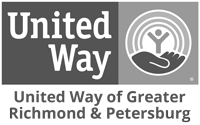
Charlotte Bowen, BSW, is the JFS Public Guardianship coordinator. She graduated from VCU with a Bachelor’s in Social Work in 2005. Prior to employment with JFS, Charlotte spent three years working with adults with intellectual disabilities in residential facilities in the community, as well as working with adolescents at the Mayor’s Youth Academy Jr. summer STEM program and volunteering in the job support lab at the Neighborhood Resource Center in Fulton Hill.
The following is a summary of Public Guardianship as it relates to JFS. This piece was written by Charlotte Bowen and edited by JFS Development Associate Bebe Santa-Wood.
How does a guardian serve?
A guardian is a person or agency, like JFS, that can be appointed by the court to assist a person who has been found to be incapacitated by a judge. Guardians are appointed to act as decision-makers only in the personal affairs of an individual (residence, medical care, etc.). A judge may also appoint a conservator, who is a decision-maker only for the financial affairs of a person.
Specifically it is defined by the Virginia Division of Aging as, “Guardians are individuals appointed by a court to protect an “incapacitated person”. An “incapacitated person” is a person who is unable to make decisions about their own care – it does not mean that they are “bad” or “foolish”. Only a judge can decide that a person is “incapacitated”, and only a judge can appoint someone to be a guardian. A “guardian” is someone who is totally in charge of another person’s affairs. A “conservator” is someone who is in charge of another person’s financial affairs.”
Guardianship restricts the decisions that a person may make. A guardianship should be sought as a last resort, when there are no other options left. A guardian may be limited to making specific kinds of decisions, rather than all decisions, if the court decides the limits are appropriate.
More information: http://www.vda.virginia.gov/whatisguardianship.asp
Why would someone need a guardian?
There are many reasons someone might need or want help making decisions in their life, but not everyone needs a guardian. Establishing Power of Attorney or Living Will ahead of time ensures that your needs are known if you are unable to communicate your wishes in the future. Family members or other supporters are often able themselves to help individuals make important decisions. Guardianship is not granted lightly – an individual placed under guardianship and deemed as incapacitated can lose several rights. This includes (but is not limited to) the right to vote, the right to possess firearms, and the right to hold a driver’s license. Every case if different and some rights may be preserved for an individual at the judge’s discretion or for limited guardianship cases. The decision to pursue guardianship should always be a last resort. It is important to ensure all other possible avenues should have been investigated and exhausted first.
People may be deemed incapacitated for a variety of reasons. An intellectual disability or traumatic brain injury may cause a person to have limited comprehension of personal circumstances. Degenerative diseases can cause cognitive deterioration. Mental health issues that affect a person’s ability to make rational decisions may also be a reason for a judge to grant guardianship. Simply having poor judgment or making bad decisions is not a valid reason to place someone under guardianship.
How is the JFS Public Guardianship Program serving the community?
Our program is truly a program of last resort, as we provide services to indigent, incapacitated adults in Virginia who have no friend, relative, or other agent to speak for them. Our program works diligently to ensure the health and safety of these vulnerable adults in the Commonwealth. We may act as medical decision makers, financial conservators, and guardians of the well-being of a person. Our efforts can be crucial in finding residential placement in the community for those individuals who may have previously resided in state-training centers and other institutional facilities.
As someone who has provided direct support to these individuals in group homes prior to assuming my current role, I can tell you from my experiences that guardianship is not only a safeguard, but can open doors for many. Through Public Guardianship, someone who has spent decades in state care can now enjoy a walk around their neighborhood, have a place to call their own, and live and work in their community. Public guardians provide support to overloaded case managers by helping find appropriate services for individuals, and acting as dedicated advocates.
And equally important, a guardian can provide another hand to hold and a compassionate voice of advocacy for individuals who may have very few people to rely on. In an age where horror stories of abuse and neglect have become commonplace in the news, guardians exist to serve and protect. We know where everyone is; if they are being served warm, healthy meals; if they are getting out of the house to shop or visit; if they are being bathed and changed properly; if they are connected and safe in the world around them. We are there for birthdays and holidays, for illness and crisis, as advocates and protectors, and as friendly visitors.
*All content provided on this blog is for informational purposes only. Nothing in this website is intended to provide legal or other professional advice, and should not be interpreted as a substitute for legal or professional advice. For more information on Public guardianship check out http://jfsrichmond.org/care-management/guardianships/





